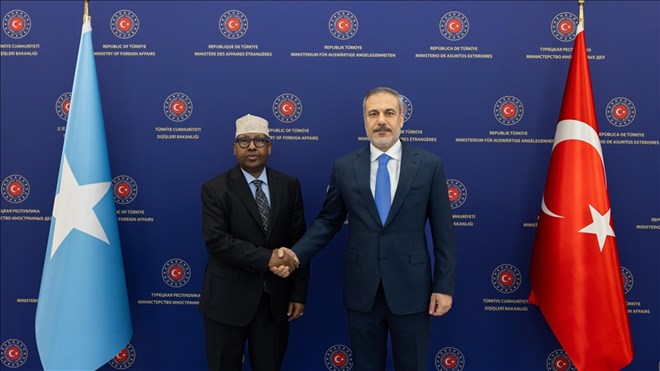
Sunday September 1, 2024
Mogadishu (HOL) — Türkiye has emerged as a central mediator in the escalating dispute between Somalia and Ethiopia over Ethiopia's pursuit of access to the sea, a move that has raised significant concerns in Somalia about its territorial integrity. The conflict stems from a Memorandum of Understanding (MoU) signed earlier this year between Ethiopian Prime Minister Abiy Ahmed and Somaliland President Musa Bihi, which grants Ethiopia access to ports in Somaliland—a breakaway region that declared independence from Somalia in 1991 but remains unrecognized internationally.
The MoU has sparked fears in Mogadishu that Ethiopia's ambitions may extend beyond commercial interests to include a military presence, a scenario that Somalia sees as a direct threat to its sovereignty. Recognizing the potential for this dispute to destabilize the Horn of Africa, Türkiye initiated the "Ankara Process," a series of diplomatic negotiations to defuse tensions between Somalia and Ethiopia.
The first round of talks, held in Ankara in July, marked the beginning of official dialogue between Somalia and Ethiopia following the signing of the MoU. A second round concluded in August, with a third round scheduled for September. Türkiye's involvement is seen as critical in ensuring that the negotiations stay on track and that a peaceful resolution is reached.
The implications of the Somalia-Ethiopia dispute extend far beyond the immediate region. The Horn of Africa is a critical corridor for global trade, providing access to the Red Sea and the Indian Ocean. Any disruption in this region could have severe consequences, affecting neighbouring countries such as Djibouti, Egypt, Sudan, and Saudi Arabia, all of which rely on the stability of these waters for their economic well-being.
Egypt recently signed a defence pact with Somalia, partly driven by its own disputes with Ethiopia over the Grand Ethiopian Renaissance Dam. The prospect of Ethiopia gaining access to the Red Sea through Somaliland has raised alarms in Cairo, particularly regarding the security of the Suez Canal, a vital global trade route.
For the Ankara Process to succeed, Ethiopia must address Somalia's concerns by clearly stating that its intentions for sea access are purely commercial. Any agreement reached must respect Somalia's sovereignty and territorial integrity, particularly concerning the sensitive Somaliland region. Continued dialogue, facilitated by Türkiye, is essential to prevent the situation from escalating into conflict.
However, if diplomatic efforts fail, the risk of regional destabilization could increase, potentially drawing in other regional powers and non-state actors, which could further complicate the situation. Such an escalation would have significant implications not only for Somalia and Ethiopia but for the entire Horn of Africa.
Türkiye's involvement in the Somalia-Ethiopia dispute is part of its broader strategic engagement in Africa. Over the past decade, Türkiye has expanded its influence on the continent through investments in infrastructure, trade, and military cooperation. In Somalia, Türkiye has been particularly active in building schools, hospitals, and roads, as well as providing military training to Somali forces. These efforts have earned Türkiye considerable goodwill, which it is now leveraging to mediate the conflict.